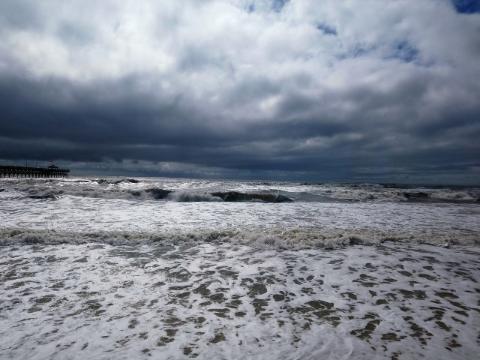Emergency Management
Emergency Management plays an important role in keeping the UWF campus community safe before, during and after an emergency.

Hurricane Season
June 1 through Nov 30
The State of Florida, Division of Emergency Management encourages residents to stock a disaster supply kit that can last the entire household, including pets, for at least seven days. The Division’s complete disaster supply kit checklist is available for download at FloridaDisaster.org/Kit.
Download the 2024 Florida Hurricane Guide
(to date, there is no 2025 or 2026 Edition)
University Student Hurricane Preparedness
Florida Sales Tax Holidays 2026
- Information to come or visit the Florida Department of Revenue website.
UWF Plans & Prepares
UWF's Emergency Management department is responsible for Emergency Management and Disaster Preparedness. Emergency Management's goals align with the FEMA Disaster Preparedness cycle. This mindset towards Emergency Management guarantees a proactive approach to addressing all hazards or disasters.
Emergency managers think of disasters as recurring events with four phases: Mitigation, Preparedness, Response, and Recovery. The diagram to the right illustrates the relationship of the four phases of emergency management.
What does the preparedness cycle do for UWF?
The National Incident Management System (NIMS) defines preparedness as “a continuous cycle of planning, organizing, training, equipping, exercising, evaluating, and taking corrective active in an effort to ensure effective coordination during incident response.” The cycle is one element of a broader system to prevent, respond to, recover from, and mitigate against natural disasters, acts of terrorism, and other man-made disasters.
Mission
The mission of the University of West Florida’s Emergency Management Department is to administer a comprehensive emergency management program in partnership with UWF administration, operations divisions, support organizations, academic departments, staff, and community partners in order to mitigate against, prepare for, respond to and recover from all hazards and threats.


